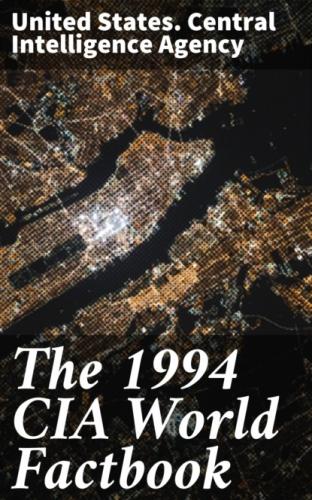@Argentina, Government
Names:
conventional long form:
Argentine Republic
conventional short form:
Argentina
local long form:
Republica Argentina
local short form:
Argentina
Digraph:
AR
Type:
republic
Capital:
Buenos Aires
Administrative divisions:
23 provinces (provincias, singular - provincia), and 1 federal
district* (distrito federal); Buenos Aires; Catamarca; Chaco; Chubut;
Cordoba; Corrientes; Distrito Federal*; Entre Rios; Formosa; Jujuy; La
Pampa; La Rioja; Mendoza; Misiones; Neuquen; Rio Negro; Salta; San
Juan; San Luis; Santa Cruz; Santa Fe; Santiago del Estero; Tierra del
Fuego, Antartida e Islas del Atlantico Sur; Tucuman
note:
the US does not recognize any claims to Antarctica or Argentina's
claims to the Falkland Islands
Independence:
9 July 1816 (from Spain)
National holiday:
Revolution Day, 25 May (1810)
Constitution:
1 May 1853
Legal system:
mixture of US and West European legal systems; has not accepted
compulsory ICJ jurisdiction
Suffrage:
18 years of age; universal
Executive branch:
chief of state and head of government:
President Carlos Saul MENEM (since 8 July 1989); Vice President
(position vacant); election last held 14 May 1989 (next to be held
summer 1995); results - Carlos Saul MENEM was elected
cabinet:
Cabinet; appointed by the president
Legislative branch:
bicameral National Congress (Congreso Nacional)
Senate:
elections last held May 1989, but provincial elections in late 1991
set the stage for indirect elections by provincial senators for
one-third of 48 seats in the national senate in May 1992; seats (48
total) - PJ 30, UCR 11, others 7
Chamber of Deputies:
elections last held NA October 1993 ( next to be held October 1995);
elections are held every two years and half of the total membership is
elected each time for four year terms; seats—(257 total) PJ 128, UCR
81, MODIN 7, UCD 5, other 36
Judicial branch:
Supreme Court (Corte Suprema)
Political parties and leaders:
Justicialist Party (PJ), Carlos Saul MENEM, Peronist umbrella
political organization; Radical Civic Union (UCR),Raul ALFONSIN,
moderately left-of-center party; Union of the Democratic Center (UCD),
Jorge AGUADO, conservative party; Intransigent Party (PI), Dr. Oscar
ALENDE, leftist party; Dignity and Independence Political Party
(MODIN), Aldo RICO, right-wing party; Grand Front (Frente Grande),
Carlos ALVAREZ, center-left coalition; several provincial parties
Other political or pressure groups:
Peronist-dominated labor movement; General Confederation of Labor
(CGT; Peronist-leaning umbrella labor organization); Argentine
Industrial Union (manufacturers' association); Argentine Rural Society
(large landowners' association); business organizations; students; the
Roman Catholic Church; the Armed Forces
Member of:
AG (observer), Australia Group, BCIE, CCC, ECLAC, FAO, G-6, G-11,
G-15, G-19, G-24, AfDB, G-77, GATT, IADB, IAEA, IBRD, ICAO, ICC,
ICFTU, IDA, IFAD, IFC, ILO, IMF, IMO, INMARSAT, INTELSAT, INTERPOL,
IOC, IOM, ISO, ITU, LAES, LAIA, LORCS, MERCOSUR, MINURSO, MTCR, OAS,
PCA, RG, UN, UNAVEM II, UNCTAD, UNESCO, UNHCR, UNIDO, UNIKOM, UNOMOZ,
UNOSOM, UNPROFOR, UNTAC, UNTSO, UPU, WCL, WFTU, WHO, WIPO, WMO, WTO
Diplomatic representation in US:
chief of mission:
Ambassador Raul Enrique GRANILLO OCAMPO
chancery:
1600 New Hampshire Avenue NW, Washington, DC 20009
telephone:
(202) 939–6400 through 6403
consulate(s) general:
Atlanta, Chicago, Houston, Los Angeles, Miami, New Orleans, New York,
San Francisco, and San Juan (Puerto Rico)
US diplomatic representation:
chief of mission:
Ambassador James CHEEK (since 28 May 1993)
embassy:
4300 Colombia, 1425 Buenos Aires
mailing address:
APO AA 34034
telephone:
[54] (1) 774–7611, 8811, 9911
FAX:
[54] (1) 775–4205
Flag:
three equal horizontal bands of light blue (top), white, and light
blue; centered in the white band is a radiant yellow sun with a human
face known as the Sun of May
@Argentina, Economy
Overview:
Argentina is rich in natural resources and has a highly literate
population, an export-oriented agricultural sector, and a diversified
industrial base. Nevertheless, following decades of mismanagement and
statist policies, the economy in the late 1980s was plagued with huge
external debts and recurring bouts of hyperinflation. Elected in 1989,
in the depths of recession, President MENEM has implemented a
comprehensive economic restructuring program that shows signs of
putting Argentina on a path of stable, sustainable growth. Argentina's
currency has traded at par with the US dollar since April 1991, and
inflation has fallen to its lowest level in 20 years. Argentines have
responded to the relative price stability
